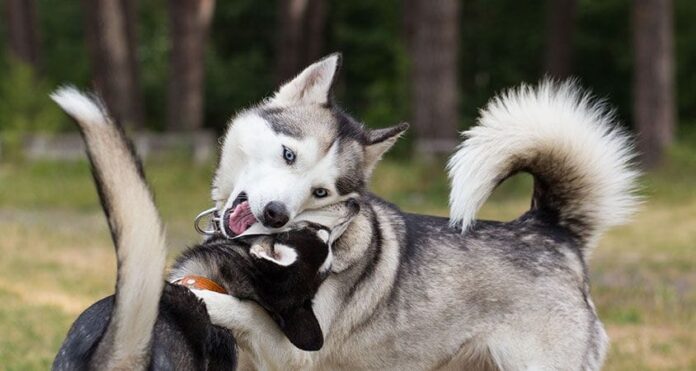
Dogs have been humans’ best friends for thousands of years. Despite this bond, our relationship with dogs doesn’t always work out as well as we’d hoped. Thousands of people are hospitalized every year for dog bites. And as it turns out, some dogs show more aggressive behavior than others.
The ongoing debate surrounding this issue hinges on the recent findings of a study pointing the finger at hormones as the culprit. Researchers found that two hormones, oxytocin and vasopressin, influence your dog’s aggressive and non-aggressive behaviors.
Oxytocin and vasopressin, also found in humans, counterbalance one another. Also known as the “love hormone,” oxytocin levels rise when humans connect lovingly. Conversely, Vasp[ressom] is like a dark but necessary twin.
It’s the hormone often linked with anger and aggression. Together, these hormones should ideally regulate each other. For the study, researchers compared the hormone levels in dogs with a history of aggressive behavior to other dogs with no history of aggression. They found that the blood of dogs that were more aggressive towards other dogs had higher vasopressin levels.
Service dogs had higher levels of oxytocin than pet dogs. It makes sense because service dogs are bred and trained for their calm and easy-going temperament. But hormones are not the end of the story. Modulating these hormones does not necessarily mean resolving your dog’s aggressive behavior.
4 Types of Dog Aggression
- Breed and Dog Aggression
- Fear and Aggressive Dogs
- Dog on Dog Aggression
- Red Zone Dogs
Behavior involves a complex interaction of genetics, physiological responses, and learned experiences. The first step in preventing aggression in your canine friend is to identify what triggers his or her aggression.
Some dogs behave aggressively because of a medical condition or because they are in pain. In one study, researchers carefully analyzed 12 dogs with aggression problems. They diagnosed all twelve dogs as having aggression caused by pain.
- What Would Happen If It Stopped Raining?
- What Causes The Smell After Rain?
- 10 Simple Ways to Stop Snoring
In this case, you should consult a veterinarian for a detailed checkup. If the dog is diagnosed with a medical issue, work with your vet closely to follow.









